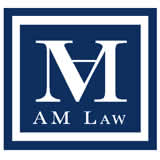As a Chapter 13 bankruptcy attorney team, we’ve seen many people get the help they need so that they can move on with their lives. Chapter 13 allows you to get caught up on missed mortgage and car payments while restructuring your debts through a repayment plan. Once you have completed your repayment plan, a Chapter 13 discharge will get rid of most of your remaining debt.
But which debts will be discharged? Keep reading to learn more.
Nonpriority Unsecured Debts
Unless one of your creditors can prove that you undertook the debt in a fraudulent way, most of your nonpriority unsecured debt is dischargeable. Speak to a Chapter 13 bankruptcy attorney to learn more. Common types of nonpriority unsecured debt that do not receive special attention like priority claims include:
- Medical bills
- Personal loans
- Credit card debt
- Old income tax obligations
- Debts for missed utility payments
- Most lawsuit judgments
This does not mean that you won’t have to pay back any of these debts when you file for Chapter 13 bankruptcy. You will pay them down over time as part of your repayment plan, then when your repayment period is up, they will be discharged.
Secured Debts
Bankruptcy discharges do not typically get rid of secured debts like liens on your property. Lenders who provided financing for your mortgage or auto loan have a security interest in your property, which means that they can foreclose or repossess your property if you stop making payments, even if your debt is discharged.
With help from a Chapter 13 bankruptcy attorney, you may be able to remove or reclassify secured debt through lien stripping or a cramdown. Stripping a junior lien from your home will reclassify your debt as unsecured debt, which means it is dischargeable in as part of your bankruptcy. Similarly, cramming down a car loan will split the debt between secured and unsecured portions. You can discharge the unsecured portion, but you will have to repay the portion that is categorized as secured.
How Chapter 13 Is Different
This form of bankruptcy allows you to discharge certain debts that you can’t with a Chapter 7 bankruptcy filing. For example, you can discharge the following under Chapter 13 and not Chapter 7:
- Debts used to pay non-dischargeable debts
- Retirement account loans
- HOA or condominium fees that became due after your filing
- Outstanding debts from previous bankruptcies that were not discharged
How Long Does a Discharge Take?
How long your bankruptcy discharge takes depends on your specific situation. Typically, you will have to pay down your debt following a repayment plan for three to five years before your debts can be discharged. Once you complete all of your plan’s requirements, you can discharge your debts.
Need Help Getting Your Debts Discharged? Talk to a Chapter 13 Bankruptcy Attorney Today
Contact us if you want to talk about your case. Our team of attorneys will work with you to figure out a solution to the problems you face.
